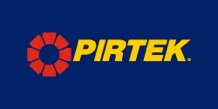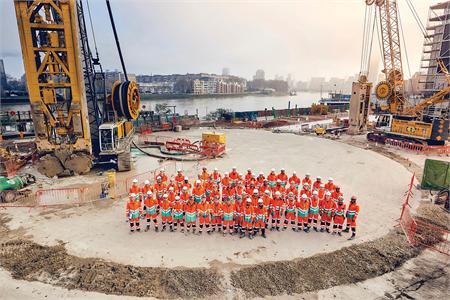One hundred and fifty years after Joseph Bezalgette built London’s sewage network, the city is due an upgrade. Although the Victorian civil engineer’s work is still in good condition, it was built at a time when the capital had a population of two million. Bezalgette had the foresight to build in capacity for twice that number but with a population of eight million now, London has well and truly outgrown its 19th century
sewage infrastructure.
The Thames Tideway scheme began in 2016 and due to be completed in 2023, is a multi-billion-pound project designed to cope with London’s waste and stormwater needs for at least the next 100 years. Phil Stride, head of Thames Tideway Tunnel, describes the project as “a 22nd century solution for London”.
At present, overflows directly into the river occur roughly on a weekly basis, amounting to 40 million cubic metres per year. The Tideway project is projected to reduce this to a little over two million cubic metres of excess waste.
Two years in, Tideway and its collaborators are working on 16 of the 24 sites, have shifted 15,000 tonnes of material by river and even raised £60,000 for charity. Alongside this, the project is also promoting education from primary-level through to work experience for post-16-year-olds.
All this large-scale civil engineering takes some serious kit, which in turn needs serious support. Pirtek Docklands, along with other franchises along the course of the Thames, is in place to provide this.
For the time being, this means the excavators and similar equipment preparing the sites, but in due course, as the tunnel boring machines make their way downstream, Pirtek Docklands will be servicing the full range of machinery.
As centre manager Grant Foster says, “It’s relatively quiet at the moment, but as the tunnel progresses, there will be plenty of work to be had.”
This kind of major infrastructure project offers great opportunities for franchises.
A willingness to take on jobs large and small enables centres to build relationships that will lead to bigger contracts.
With Crossrail being one of the most significant construction ventures in London for many years, Pirtek Docklands was willing to supply specialist and non-specialist parts to contractors when called upon.
“We used to supply whatever they wanted,” says Grant, “including completely unrelated stuff that they asked for simply because we could respond so quickly.”
“It’s part of the service,” says Grant. “Maintaining the relationship means we’ll get more work in the future.”
The Docklands franchise has a number of ongoing service contracts related to the light industry and construction in its area.
Among these are Ainscough Crane Hire, one of the UK’s largest providers of heavy lifting equipment. This is mostly a hose supply contract, Grant explains.
“They don’t have a lot of breakdowns. We supply their depots but they have their own engineers, so between us we must be doing a good job.” In the east end of London, another iconic customer is Billingsgate Market, the UK’s largest inland fish market, which Pirtek Docklands has been servicing for around eight years.
The self-contained site covers 13 acres with 98 stands and 30 shops, including two cafes; a number of individual cold rooms; a 1,500 tonne freezer store; an ice making plant and 14 lock-up shops used by processors, catering suppliers and merchants. The contract provides a steady stream of work, Grant says.
“We’re out there around once a week, sometimes more. It’s a good source of income.
“We mainly work on their cleaning equipment, wash down hoses, fire hoses and hose reels. They also have a mini sweeper that washes down all in one.”
In general, the franchise does a mixture of one-off roadside breakdown jobs and ongoing contracts.
“It’s about 50-50,” Grant says. Of the longer-term contracts, he details, “Most of our work is on regular hose jobs – when it breaks we fix it. There is a certain amount of ongoing maintenance, but basically once the job is done, it’s done.”






Select a country